
Orientale Province is one of the former provinces of the Democratic Republic of the Congo and its predecessors the Congo Free State and the Belgian Congo. It went through a series of boundary changes between 1898 and 2015, when it was divided into smaller units.

Ituri District, later Kibali-Ituri District, was a district of the Belgian Congo and the Democratic Republic of the Congo. It roughly corresponded in area to the present Ituri Province.

Haut-Uele District was a district of the Belgian Congo and the Democratic Republic of the Congo. It was formed from part of Uele District in 1912. It roughly corresponded in area to the present Haut-Uélé province.

The Free Republic of the Congo, often referred to as Congo-Stanleyville, was a short-lived rival government to the Republic of the Congo (Congo-Léopoldville) based in the eastern Congo and led by Antoine Gizenga.
The following is a timeline of the history of the city of Kisangani, Democratic Republic of the Congo.

Jean-Pierre Finant was a Congolese politician who served as the first President of Orientale Province in the Democratic Republic of the Congo from June until October 1960.

Marcel Maquet was a Belgian colonial administrator who became commissioner of Stanleyville Province in 1940, then governor of Léopoldville Province in 1943.
Count Albert-Émile de Beauffort was a Belgian colonial administrator.
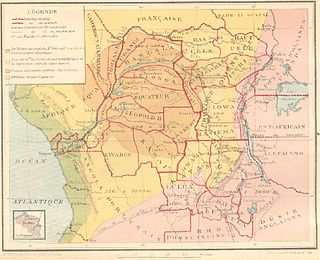
Congo-Kasaï was one of the four large provinces of the Belgian Congo defined in 1914. It was formally established in 1919, and in 1933 was divided into the new provinces of Léopoldville and Lusambo.
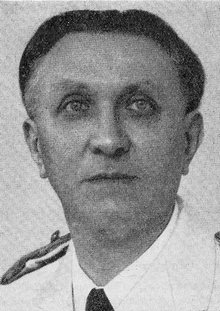
Ernest-Camille Bock was a Belgian lawyer and colonial administrator. He was governor of Orientale Province in the Belgian Congo from 1945 to 1952.

Kivu Province was a province in the Belgian Congo, originally called Costermansville Province, that was formed in 1933 from part of the old Orientale Province. The Republic of the Congo (Léopoldville) became independent in 1960, and between 1962 and 1966 the province was temporarily broken into the provinces of Maniema, North Kivu and South Kivu. In 1988 it was again broken into these provinces.

Adolphe De Meulemeester was a Belgian soldier and colonial administrator. He was deputy governor-general and then governor of the Orientale Province of the Belgian Congo from 1917 to 1926. He introduced many innovations including a road network, schools and clinics, chiefdom and sector councils, and cotton plantations.
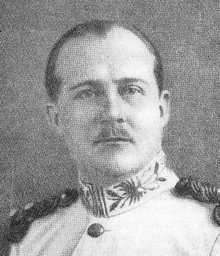
Alfred Alphonse Moeller de Laddersous was a Belgian lawyer, colonial administrator and businessman. He served as governor of the Orientale Province in the Belgian Congo from 1926 to 1933.
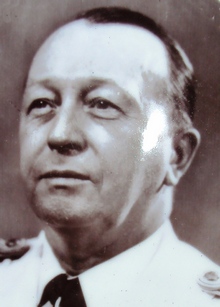
Pierre Nauwelaert was a Belgian colonial administrator. He was interim governor of Équateur Province from 1950 to 1951, and was governor of Léopoldville Province from 1953 to 1955.

Georges Brunon Joseph Marie Moulaert was a Belgian colonial administrator. He was deputy governor general of Équateur Province in the Belgian Congo from 1917 to 1919. Later he became a businessman, head of several large enterprises in the Congo, and director of others. He drew criticism for his forced recruitment of Congolese workers in the Kilo-Moto gold mines.

Kivu District was a district of the Belgian Congo. It was formed from part of Stanleyville District in 1914.
Louis de Jaegher was a Belgian colonial administrator. He was governor of Kasaï Province in the Belgian Congo from 1958 to 1960, just before the country became independent as the Republic of the Congo (Léopoldville).
Constant Wauters was a Belgian colonial official. He was commissioner of Lusambo Province in the Belgian Congo from 1 October 1933 to 17 August 1940.
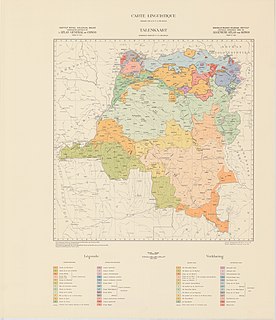
The Districts of the Belgian Congo were the primary administrative divisions when Belgium annexed the Congo Free State in 1908, each administered by a district commissioner. In 1914 they were distributed among four large provinces, with some boundary changes. In 1933 the provinces were restructured into six, again with boundary changes. The number of districts fluctuated between 12 and 26 through splits and consolidations, first rising, then falling, then rising again.